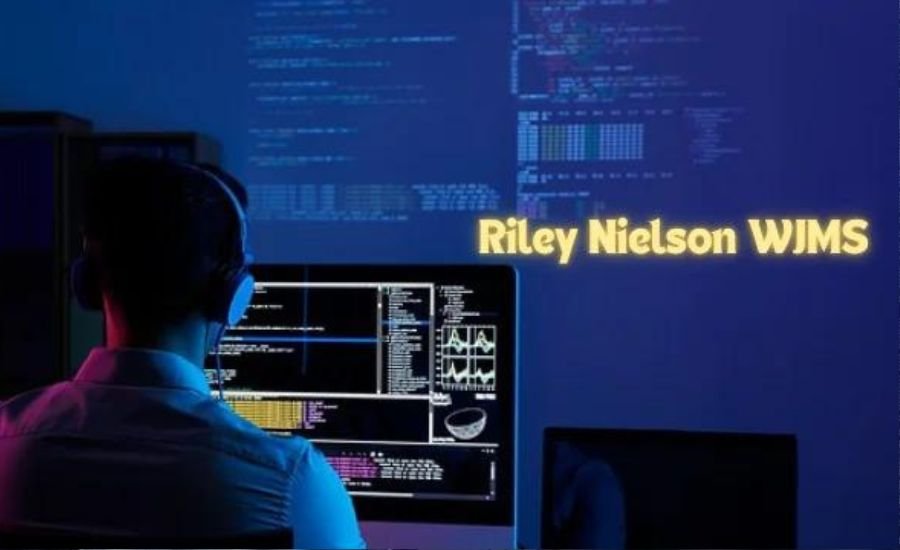Working offline
Introduction
The USDTCCK regulation, or the US Computerized Token and Money Certificate Key, addresses an essential move toward managing advanced monetary standards inside the US. Intended to upgrade straightforwardness and security in the expanding advanced finance area, this administrative system expects to lay out clear rules for the issuance and exchanging of computerized tokens and monetary standards.
By giving an organized methodology, USDTCCK tries to moderate dangers related to unregulated computerized resources while cultivating development and interest in this advancing scene. Understanding these guidelines is vital for organizations and financial backers exploring the intricacies of computerized finance. This article investigates the critical parts of USDTCCK, offering bits of knowledge into its suggestions and the fate of computerized money guidelines in the US.
What is the USDTCCK Legislation?
The USDTCCK regulation, formally known as the US Computerized Token and Cash Confirmation Key, lays out a thorough system for supervising computerized tokens and monetary standards inside the US. Sanctioned because of the fast development of computerized finance, this regulation expects to resolve a few main points of contention. It gives a reasonable meaning to computerized tokens and monetary standards, illustrating measures for their issuance and exchange.
For example, it requires elements giving computerized tokens to go through thorough confirmation cycles to guarantee consistency with monetary guidelines. Additionally, the regulation orders improved straightforwardness measures, like customary reviews and detailing prerequisites, to defend financial backer interests and relieve monetary dangers related to advanced resources. By setting these guidelines, USDTCCK plans to advance trust and steadiness in the computerized finance biological system, cultivating a favorable climate for development and speculation. Understanding these central perspectives is fundamental for partners exploring the developing scene of advanced monetary standards in the US.
Key Provisions in the USDTCCK Legislation
The USDTCCK regulation envelops a few basic arrangements pointed toward directing computerized tokens and monetary standards exhaustively. One key arrangement is the prerequisite for elements giving computerized tokens to get affirmation, guaranteeing consistency with severe administrative guidelines. This affirmation interaction includes careful examination of the token’s fundamental innovation, monetary solidness, and adherence to hostile to illegal tax avoidance (AML) and Know Your Client (KYC) rules. Furthermore, the regulation orders occasional reviews and straightforward answering to keep up with responsibility and financial backer certainty.
In addition, USDTCCK acquaints measures with safeguard shoppers by laying out clear rules for question goal and response systems in instances of misrepresentation or misbehavior. It likewise addresses concerns regarding advertising control and insider exchanging through upgraded checking and requirement arrangements. By executing these vigorous systems, USDTCCK expects to cultivate a protected and straightforward climate for computerized finance, offsetting development with administrative oversight. Partners in the advanced money space should get a handle on these arrangements to explore consistence necessities and jump all over chances in the developing administrative scene.
Who Does the USDTCCK Legislation Apply To?
The USDTCCK legislation applies to a wide range of entities involved in the issuance, trading, and management of digital tokens and currencies within the United States. It primarily targets digital asset issuers, including startups, corporations, and financial institutions that create or manage digital tokens. These entities are required to undergo certification processes to ensure compliance with regulatory standards, such as AML and KYC guidelines, enhancing transparency and reducing financial risks.
Furthermore, the legislation impacts digital currency exchanges and trading platforms that facilitate the buying and selling of digital tokens. These platforms must adhere to regulatory requirements for licensing, reporting, and consumer protection to operate legally in the United States. Additionally, USDTCCK affects investors and consumers by establishing clearer guidelines for their participation in the digital finance market, ensuring better protection and recourse mechanisms in cases of fraud or disputes.
What Are the Main Goals of the USDTCCK Legislation?
The USDTCCK regulation plans to accomplish a few key targets pointed toward upgrading the guidelines and oversight of computerized tokens and monetary forms in the US. One essential objective is to lay out lucidity and sureness in the computerized finance area by characterizing clear rules for the issuance, exchanging, and board of advanced resources. This incorporates setting guidelines for safety efforts, straightforwardness, and consistency with monetary guidelines.
Another objective is to alleviate gambles related to unregulated computerized finance exercises, like misrepresentation, market control, and tax evasion. By carrying out strong affirmation processes and rigid revealing prerequisites, USDTCCK plans to safeguard financial backers and shoppers while cultivating trust and security in the advanced money biological system.
Besides, the regulation looks to advance development and intensity inside the computerized cash market by giving an administrative structure that offsets development with financial backer insurance. It plans to establish a favorable climate for development and interest in computerized finance advances, guaranteeing the US stays at the forefront of advanced finance advancement universally.
Understanding these objectives is fundamental for partners exploring the ramifications of USDTCCK on the computerized money scene.
How Will the USDTCCK Legislation Be Implemented?
The execution of the USDTCCK regulation includes an organized way to deal with implementing administrative consistency and upgrade oversight in the computerized finance area. Key parts of execution incorporate the foundation of administrative bodies entrusted with supervising computerized symbolic backers, trades, and specialist organizations. These bodies will implement accreditation necessities, direct reviews, and screen consistency with against tax evasion (AML) and Know Your Client (KYC) guidelines.
Furthermore, the regulation orders joint efforts between government offices, monetary organizations, and innovation firms to create and carry out specialized principles for advanced resources the board, and security. This incorporates conventions for secure symbolic issuance, exchange checking, and information assurance to moderate online protection gambles.
Besides, USDTCCK frames measures for government-funded schooling and mindfulness missions to illuminate partners about their privileges and commitments under the new
administrative structure. By encouraging coordinated effort and setting clear rules, USDTCCK expects to establish a vigorous and secure climate for computerized finance development while defending financial backer interests and advancing business sector uprightness. Understanding these execution procedures is urgent for partners to get ready for consistency with USDTCCK prerequisites.
What Are Some Potential Challenges With the USDTCCK Legislation?
Despite its means to direct and get the computerized finance area, the USDTCCK regulation faces a few likely difficulties. One huge issue is the powerful idea of computerized advancements, which might dominate administrative systems intended to administer them. This fast development could make holes in oversight and consistency, possibly presenting financial backers with new dangers.
One more test lies in accomplishing worldwide arrangements on advanced cash guidelines. Varieties in administrative methodologies across various purviews could block cross-line exchanges and worldwide market combinations for computerized resources controlled under USDTCCK.
Additionally, the intricacy of carrying out specialized norms and network safety estimates represents another test. Guaranteeing vigorous security conventions and consistency with severe AML and KYC necessities might require a significant interest in innovation and aptitude, especially for more modest substances in the computerized finance environment.
Furthermore, finding some kind of harmony between encouraging development and keeping up with administrative consistency remains a sensitive test. Excessively prohibitive guidelines could smother mechanical progressions, while deficient oversight could think twice about insurance. Tending to these difficulties really will be pivotal for the fruitful execution and long-haul viability of USDTCCK.
What Do Supporters Say About the USDTCCK Legislation?
Allies of the USDTCCK regulation feature a few advantages and positive results anticipated from its execution. They contend that the regulation gives genuinely necessary administrative lucidity and assurance in the advanced money area, which could draw in institutional financial backers and encourage a more noteworthy standard reception of computerized resources. This administrative sureness is supposed to lessen market unpredictability and upgrade financial backer certainty.
Besides, allies accentuate the regulation’s job in improving monetary straightforwardness and alleviating gambles related to unregulated computerized finance exercises. By ordering vigorous accreditation processes and severe consistency measures, USDTCCK intends to safeguard buyers and financial backers from extortion, illegal tax avoidance, and other monetary violations.
Besides, defenders of USDTCCK contend that the regulation advances development by making a level battleground for computerized resource backers and trades. It energizes dependable development while guaranteeing consistency with lawful and administrative necessities, in this way supporting the development of a practical computerized finance biological system.
Understanding these viewpoints is essential for partners surveying the possible effects of USDTCCK on the advanced cash scene and administrative climate.
What Do Critics Argue About the USDTCCK Legislation?
Pundits of the USDTCCK regulation mention a few worries and criticisms concerning its possible effect and execution. One noticeable analysis is that the regulation could smother development and ruin mechanical headway in the computerized finance area. They contend that severe administrative necessities and consistent weights may lopsidedly influence new companies and private ventures, restricting their capacity to contend and advance.
Another worry is the potential for administrative impropriety and its suggestions for protection and individual independence. Pundits recommend that the broad detailing and consistency measures ordered by USDTCCK could encroach on client security freedoms and force unnecessary reconnaissance estimates on advanced exchanges.
Moreover, doubters question the adequacy of USDTCCK in tending to foundational takes a chance in the computerized cash market, like market control and misrepresentation. They contend that administrative structures frequently battle to stay up with quickly advancing advancements, possibly making provisos and weaknesses in the framework.
Also, pundits feature the difficulties of accomplishing worldwide harmonization of advanced money guidelines, which could restrict the worldwide intensity of U.S.-based computerized resource firms.
Understanding these reactions is fundamental for partners assessing the more extensive ramifications and expected disadvantages of USDTCCK on the computerized finance scene.
Conclusion
All in all, the USDTCCK regulation denotes a critical step towards directing computerized monetary forms inside the US. Intended to upgrade straightforwardness and security in the prospering advanced finance area, this administrative system sets clear rules for the issuance and exchanging of computerized tokens and monetary standards. By laying out thorough affirmation processes and rigid consistency measures, USDTCCK plans to alleviate chances related to unregulated advanced resources while encouraging development and interest in this advancing scene.
Partners exploring the intricacies of computerized finance should get a handle on these guidelines to consent to necessities and quickly jump all over chances in the directed market. As computerized monetary standards keep on reshaping worldwide money, understanding and adjusting to USDTCCK will be fundamental for guaranteeing a safe and stable climate for all members.




